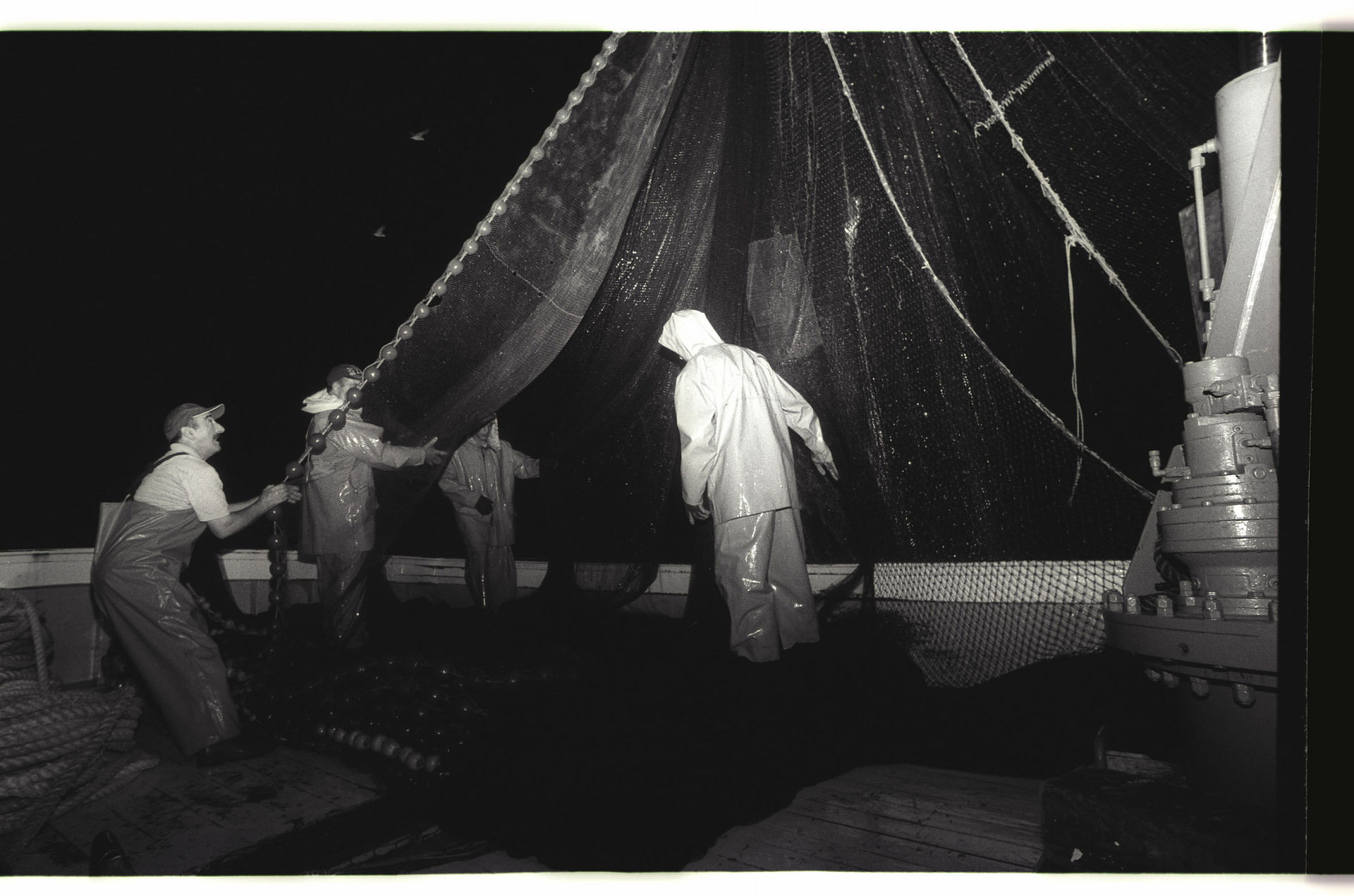
LUCI A MARE
(lights at sea)
a film by
Stefania Muresu
Fabian Volti

IL FILM
Lights at sea is a tale of men, living and working at the sea.
For over two decades, a fishing boat sails every year from the Ponza Island to Porto Torres (Sassari, Northern Sardinia) for the seasonal activity of Sardine fishing, which takes place from March until October in the sea of the Asinara gulf.
The documentary retraces the ancient migration routes through the memory of a fisher’s family from Ponza, which in the sixties travelled for the first time to the Sardinian coast, arriving in Su Pallosu (OR), and kept sailing between the two islands ‘til nowadays.
Like an imaginary and cyclic journey, the documentary moves its focus to Porto Torres uncovering the entire green fishing season. The core of the story is the crew everyday life: the overnight work, the strain and the routine of the sea, the hierarchies and balances among the twelve men embarked on the fishing boat “Capobianco”.
In a succession of departures and arrivals, the seven months lasting shootings reveal night and day images of the life onboard during all its phases of navigation and work ashore, alternated by interviews of the captain and the crew. The documentary unfolds through the fisher’s dialogues in their native dialects and the noisy engine sounds, showing the long waiting at night and the fish sorting, the loading and unloading.
The lights at sea represent a symbolic research, the constant challenge between the man and the sea, while the fish catching is the unpredictable synonym of gain and survival.
The moon gazes the long working night and moves the flows bringing the fish inside and outside the gulf. The boat sails around the two small fishing lamps, where two men wait surrounded by silences and deafened by the engine noises illuminated only by the lights at sea.
Luci a mare è una storia di uomini, mare e lavoro.
Da oltre vent’anni una barca da pesca di origine ponzese arriva ogni anno a Porto Torres (SS, Nord Sardegna), per la pesca stagionale della sardina, che si svolge da marzo a ottobre nel mare del golfo dell’Asinara.
Ripercorrendo le lontane rotte migratorie tra le due isole attraverso le memorie raccolte nell’Isola di Ponza dalla famiglia di pescatori che arrivò per la prima volta in Sardegna negli anni Sessanta a Su Pallosu (OR), come in una ciclica e immaginaria traversata, il documentario arriva fino a Porto Torres soffermando il suo sguardo sull’intera stagione di pesca al pesce azzurro nel 2013.
Al centro della storia la vita dell’ equipaggio, il lavoro notturno, la fatica e la quotidianità del mare, le gerarchie e gli equilibri dei dodici uomini – siciliani, ponzesi, sardi – imbarcati sul peschereccio “Capobianco”.
In un alternarsi di arrivi e partenze girate durante i sette mesi della stagione di pesca, tra le immagini notturne e diurne della vita a bordo, in navigazione e in banchina, le interviste e le voci fuori campo del capitano e dei membri dell’equipaggio, i momenti di attesa e le fasi di smistamento e scarico del pescato, il film si snoda tra i dialoghi dei pescatori nei loro dialetti e l'assordante rumore del motore.
La luce è ricerca, simbolo della sfida dell’uomo con il mare, e la cattura del pesce sinonimo imprevedibile di guadagno e sopravvivenza.
La luna guarda la notte di lavoro muovendo le correnti che portano fuori e dentro il golfo i banchi di sardine. La barca madre ruota attorno alle due lampare, dove due uomini, circondati dai silenzi sospesi del mare e assordati dal frastuono costante del gruppo elettrogeno, aspettano in mare, dove a illuminare la scena è solo la luce delle lampare.


